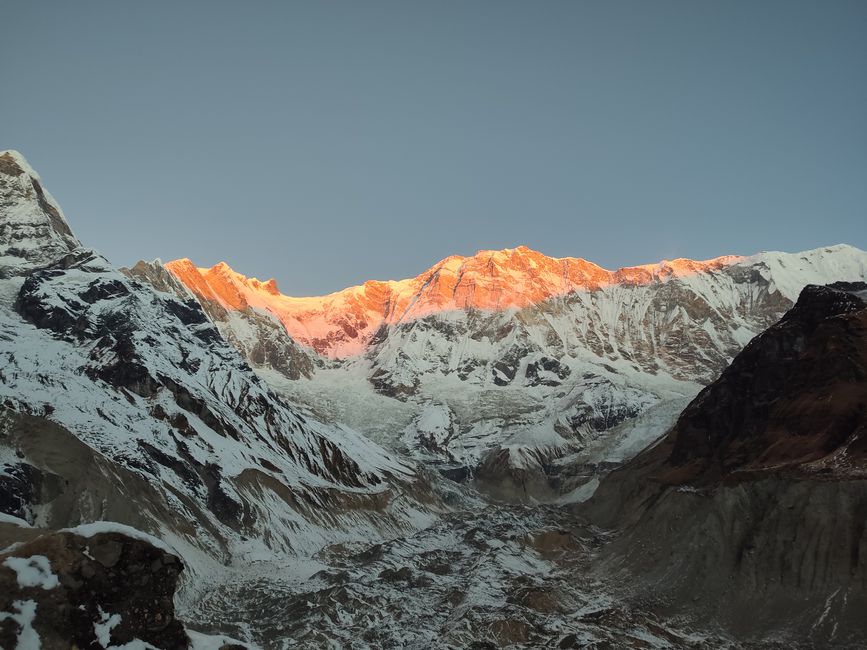Diving on Koh Tao - Thailand
Ku kandziyisiwile: 12.03.2024
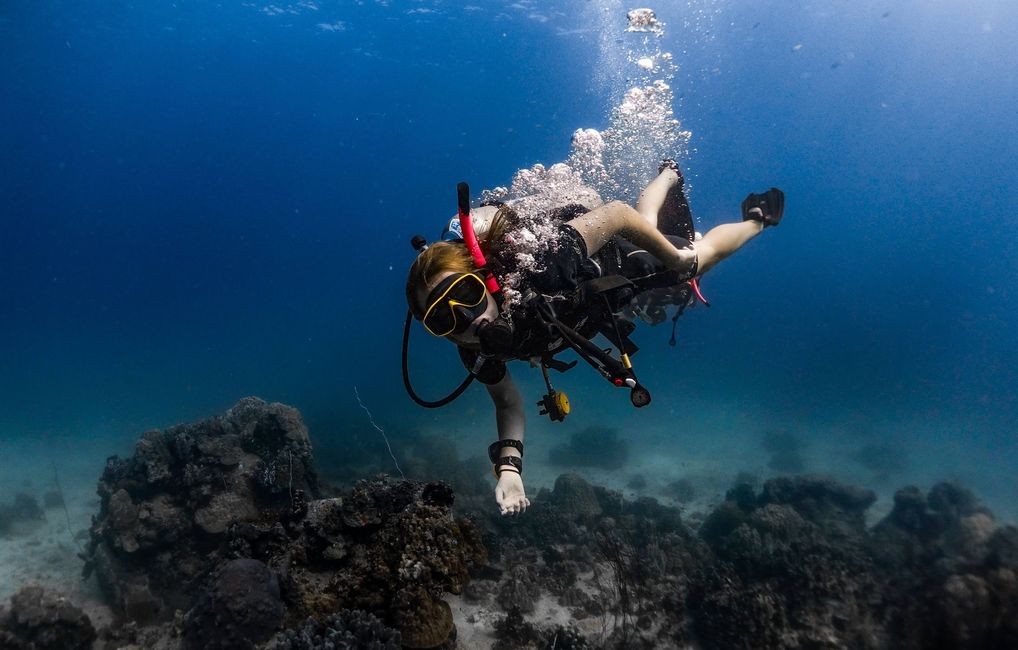
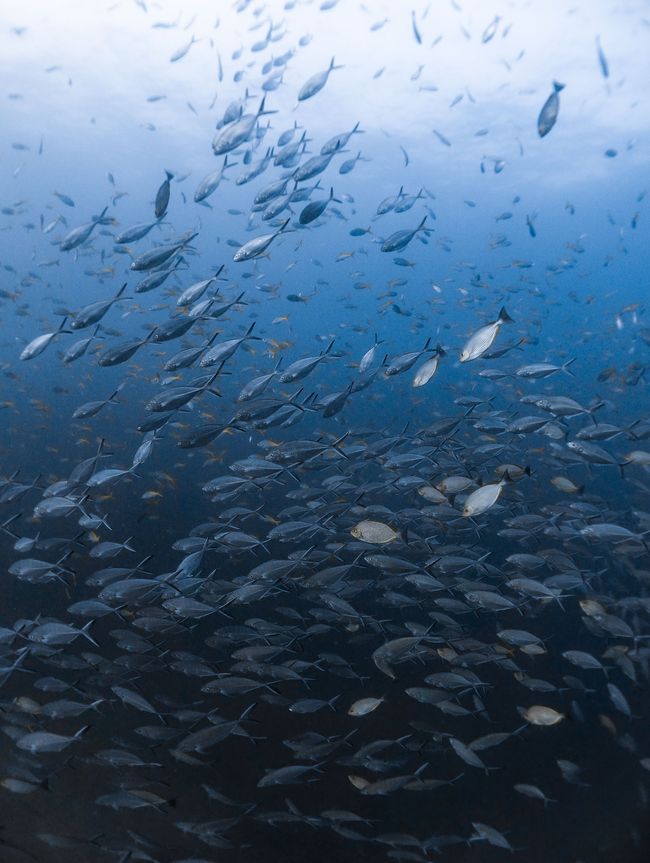
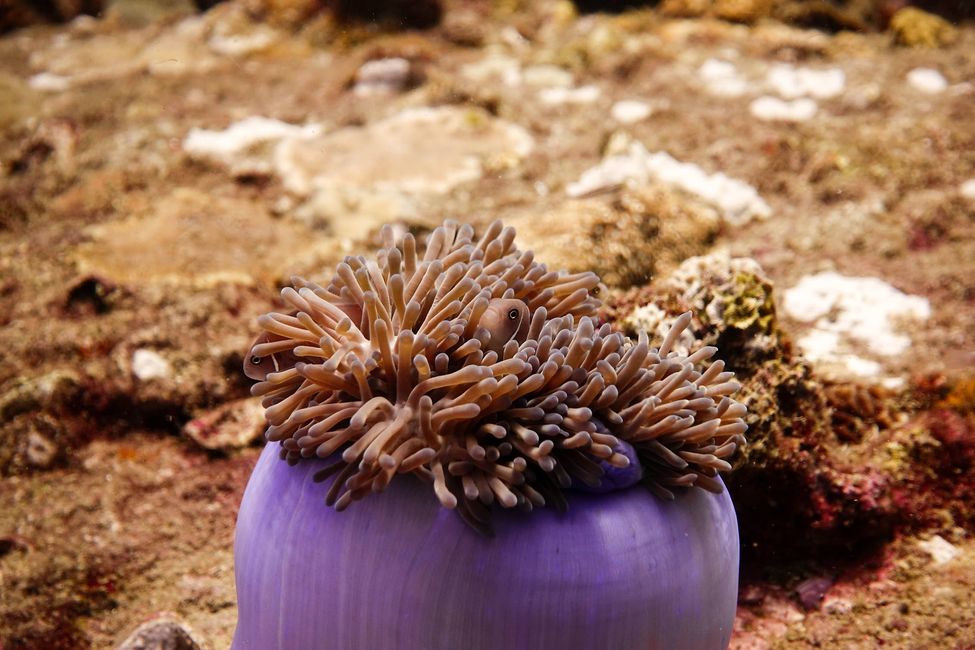
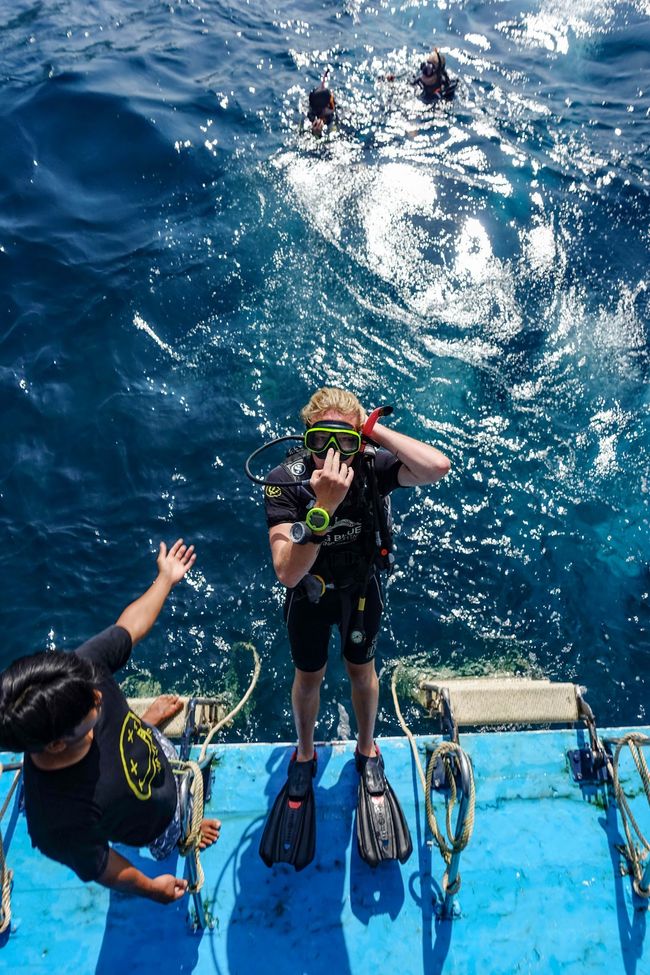
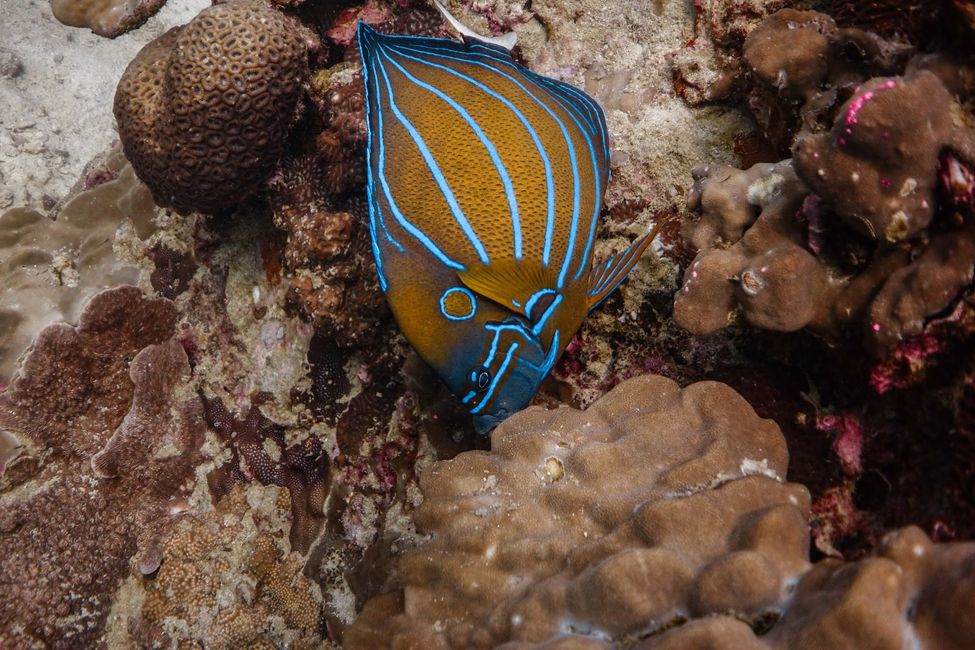
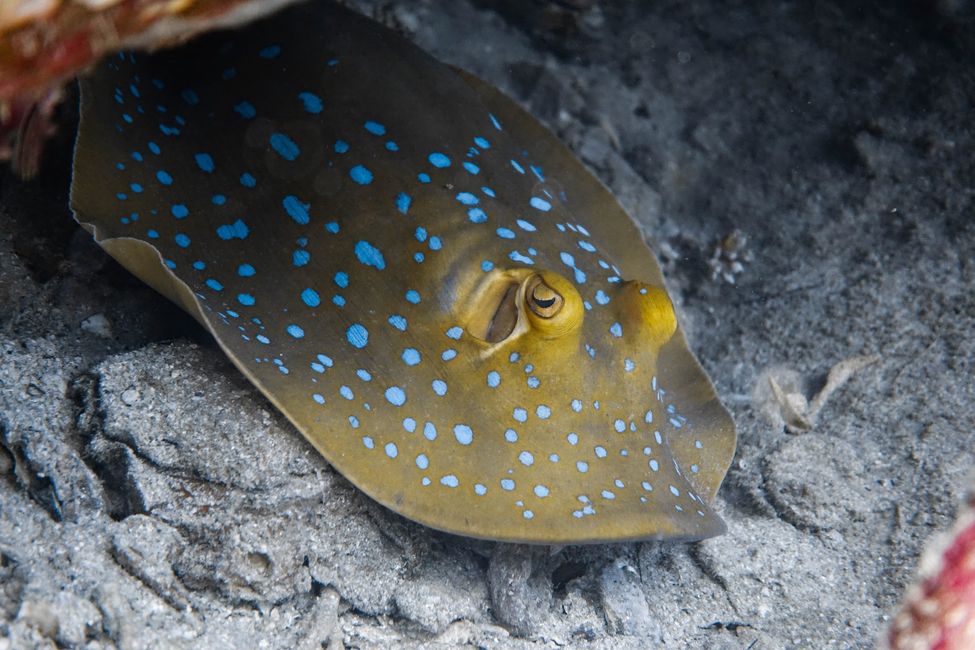
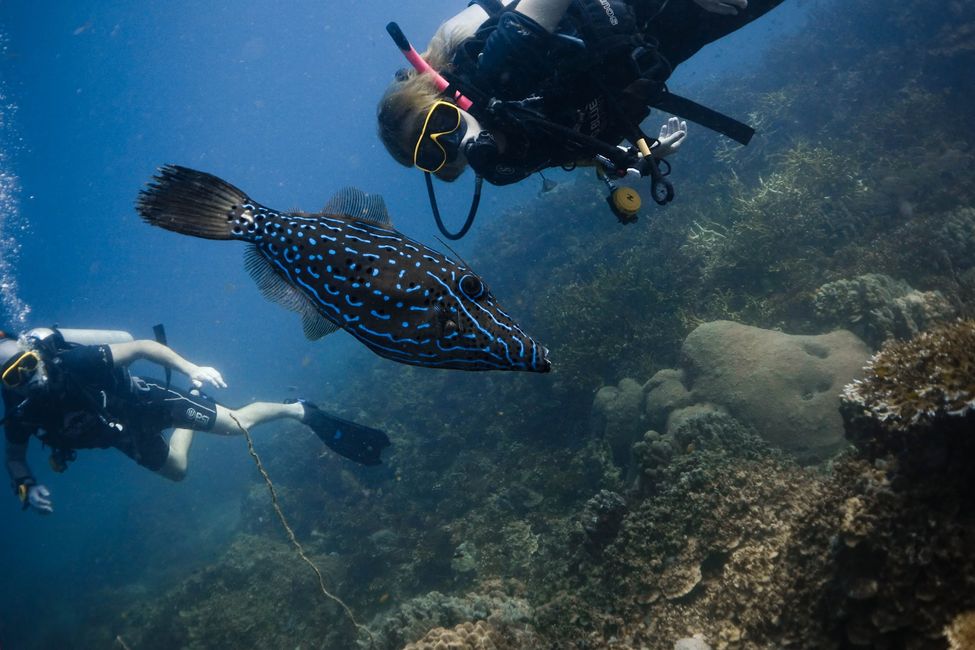
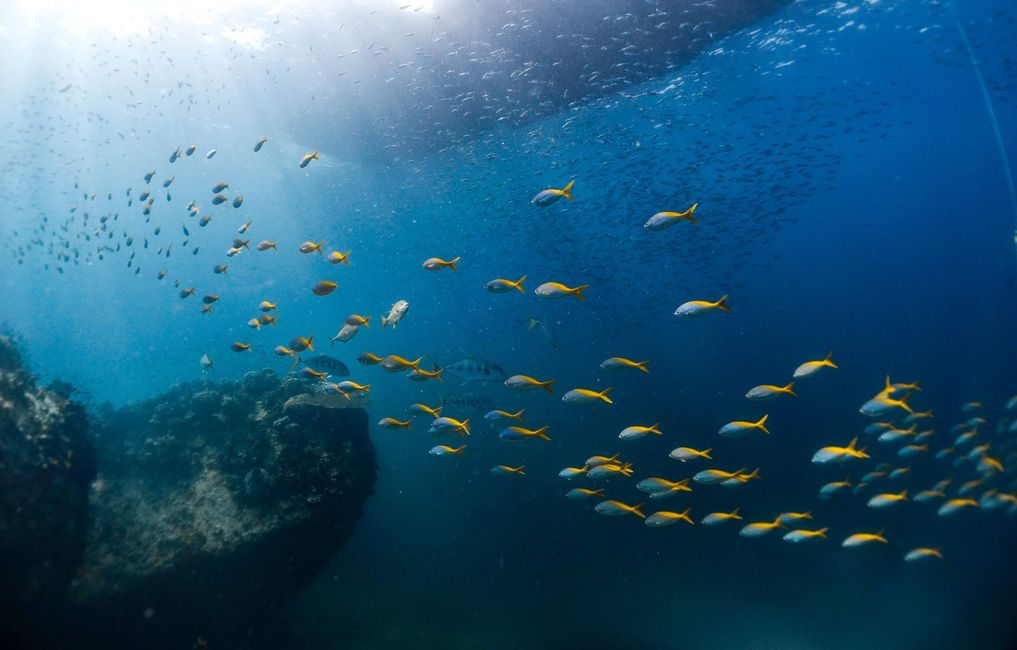
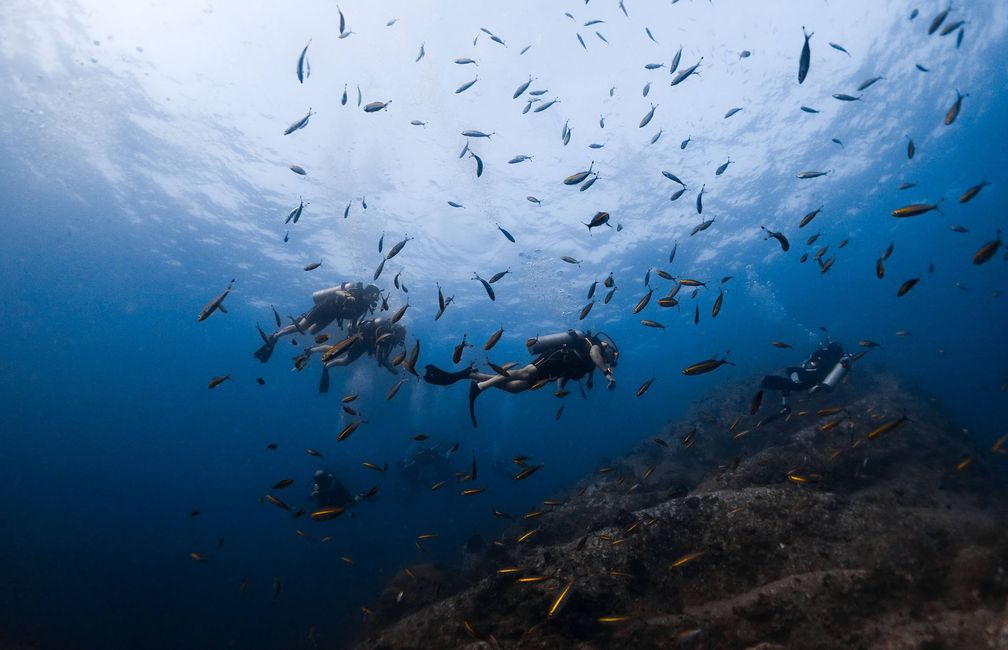
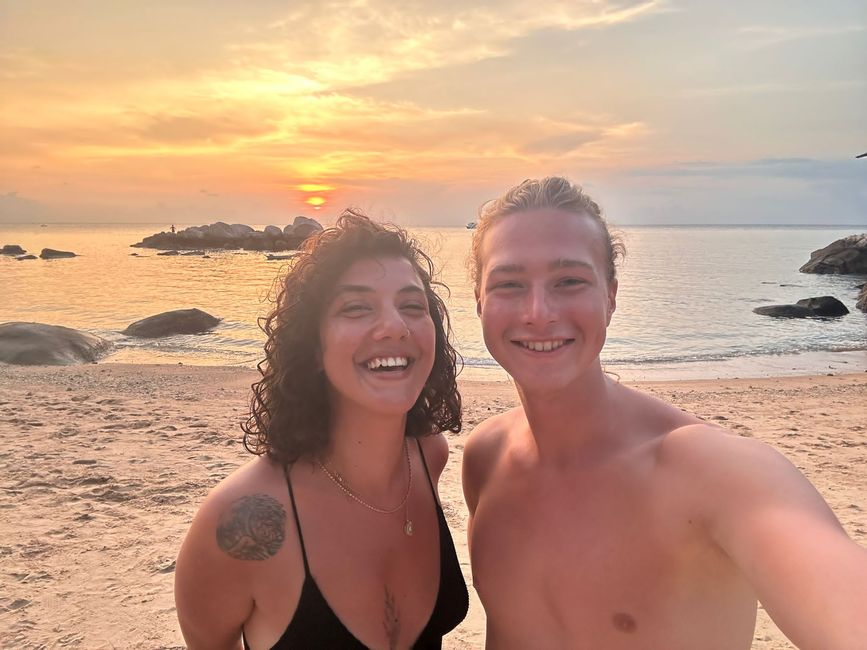
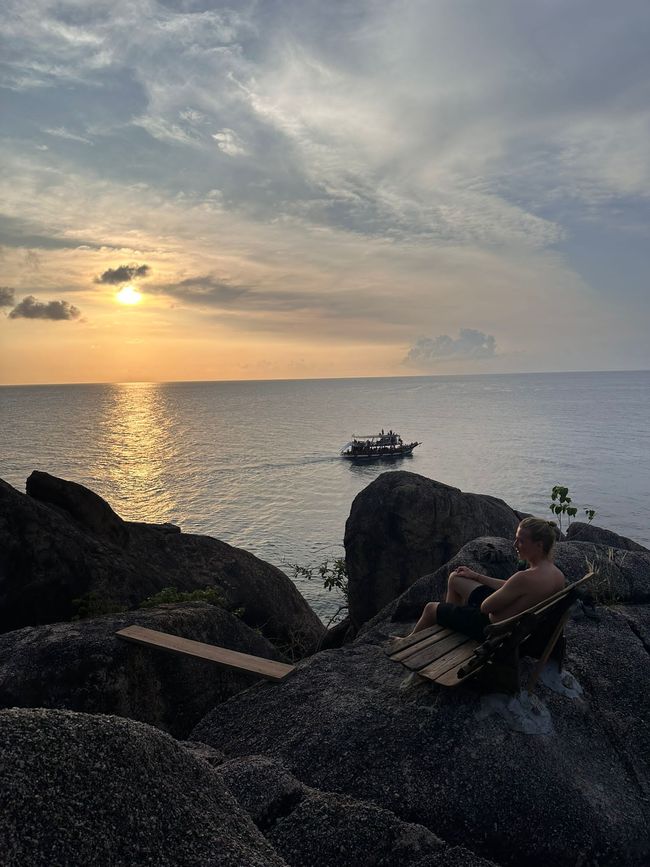
Tsarisa eka Xiphephana xa Mahungu
Since Koh Tao was always described and recommended to me as the quietest island in the archipelago of Koh Tao, Koh Pha-ngan and Koh Samui, I was more than surprised when I arrived. The island is a small colonial state of western tourists, where the entire economy of the island is focused on tourism and you see significantly more Caucasians than Thais. I was a little uncomfortable at the thought of spending my last days of the trip here, between the party tourism, restaurants where it's easier to get an English breakfast and smoothie bowls than traditional food and the omnipresent presence of German and English.
To escape this mess, I planned to realize a long-term dream here. Koh Tao is not only known for its rapid tourism development, but also for the fact that there is no place in the world where so many diving certificates can be obtained. My brother, Thommy, has inspired me over the last few years and most recently when he did his dive master in Honduras and told me about the uniqueness of the marine ecosystem. My plan was to do the open water course and the advanced adventurer here to get a first insight into this 'sport'. At the beginning I never thought that diving would draw me into such a deep vortex of joy, curiosity and fulfillment as it did.
I was a little bit upset at the beginning because, in contrast to the others, my diving group consisted of people who weren't that 'funny'. An older British couple, who simply had a very different mindset and interests than me, and my diving buddy, a 25-year-old Hong Kong woman who was very nice, but a bit introverted and not so talkative, formed my company for the first 6 days. But I quickly realized that my concentration wasn't really on the group itself, but rather on the diving itself. I quickly got used to the unfamiliarity of breathing through a respirator and underwater and not only enjoyed the peace, quiet and weightlessness in the ocean, but also the marine ecosystem. You glide between a wide variety of corals. Some look like cacti or the surface of the cerebrum, others like huge bonsais and polyps and still others are reminiscent of a huge labyrinth embedded in a hemisphere. Brightly colored "Christmas tree plants" grow on the corals, which actually look like fir trees and, when lightly touched mechanically, such as by a blast of water, their tentacles snap in and disappear into the coral.
If you look more closely, moray eels, blue-spotted stingrays, huge hermit crabs that seek refuge in oversized abandoned shells, small shrimps that live in symbiosis with a certain type of fish and seem like an alternative married couple and of course the sea snails appear between the rock crevices. And I am now consciously and honestly saying that sea snails are definitely the coolest animals that live on the seabed or on the corals. The snails have no shell, have the craziest geometric shapes and, above all, a super diverse and unique coloring. They look like alien creatures that crashed into the Gulf of Thailand in their UFO thousands of years ago and are slowly preparing to invade and take over Earth. I can only recommend that everyone stop reading and type “Nudibranches” into Google and take a look at this absurd species.
If you manage to avert your gaze from the mesmerizing coral landscape and concentrate on the horizontal, you will quickly find yourself in schools of fish that consist of hundreds of seemingly cloned fish. From schools of small and unspectacular fish to ones in which butterfly fish glide through the water simultaneously as if in a perfect choreography, you can find everything here. The frightening schools of baracids compete with the monstrous giant wrasses, which look like the villains of a gangsta film noir fish thriller. When the giant turtles calmly pass by and you dive through the shipwrecks of the Second World War, you feel like you're on another planet, surprised by all the impressions and sometimes dazed. Although the feeling of lightheadedness could have come before the nitrogen anesthesia. And here I come to something that makes diving at least as exciting for me as actually being in the water.
Humans are entering an environment that evolution never intended for them. It just starts with the absence of oxygen. People are only able to survive and even have fun in this environment because they use artificial isolation (or their own environment), such as diving equipment, to separate themselves from the factors of the actual environment. The pressure in the water increases by 1 bar every tenth meter and thus by an atmospheric equivalent, with all the air-filled spaces in the human body being compressed in volume. The innards, lungs and sinuses can be affected quite well, but the middle ear cannot. Everyone knows the necessary pressure equalization to prevent a rupture of the eardrum. When you put yourself under more and more pressure, aka. As we dive deeper, gases that are not even metabolized at sea level suddenly start to cause problems. Nitrogen dissolves and accumulates in the tissue and can then attach to the insulating fatty disks of the nerves where it impedes electrical conduction and can lead to dizziness, euphoria or anxiety. My instructor even told me about a student diver who, at 100 feet, pulled his respirator out of his mouth and started trying to kiss fish.
Although you might think that descending and being exposed to higher pressures is the most dangerous thing, you are unfortunately wrong. The climb actually poses the most danger. If the pressure is reduced and handled incorrectly, decompression sickness can quickly occur. In which the nitrogen accumulated in the tissue is suddenly released back into the blood so quickly due to the falling pressure that bubbles form before they can be metabolized. You are literally like a can of Coke that bubbles up when you open it. The only difference is that the bubbles dart around in the blood vessels and act as an embolus, closing the vessels and thus leading to infarctions.
When you think about things like that on the climb, you should quickly forget to hold your breath. Because just as the air-filled spaces were compressed, they now expand again and if the lung is in a closed system, it inflates until the pleura ruptures. Then in no time you have a pneumothorax with a collapsed lung.
If you decide to dive back down out of fear, you better have a fit circulatory system. The pressure compresses the superficial veins and pushes the blood forward into the vena cava, the right heart and finally to the lungs. The increased venous pressure pushes the blood plasma out of the vessels into the mediastinum (chest cavity) and into the alveoli of the lungs. Pulmonary edema makes it more difficult to breathe. As water is retained in the chest cavity, the lungs and heart are further compressed and their functions become insufficient.
So you're swimming with all these horror scenarios and you can't stop peeing in your diving suit because the increased blood pressure causes your kidneys to go into overdrive and you're excreting water and electrolytes like a horse. It's funny that the most common side effect of diving in water for long periods of time is dehydration.
Okay, maybe diving sounds like a desperate attempt to kill yourself in as many ways as possible at the same time, but it's not, or it doesn't have to be. No matter how good your diving equipment is, you can build an expensive artificial environment around you to isolate yourself from the influences of the environment. If you don't have the necessary knowledge about how to handle the devices and even more about how to behave in the water, no expensive buoyancy device and on-board computer will help protect you.
What I'm trying to tell you in this long ramble is that the physiology, the influences of pressures, the changing behavior of gases, and long-term exposure to cool salt water are just damn interesting and cool! And this has only scratched the surface of diving medicine. It is a branch of medicine that has very little presence, but is still incredibly interesting and necessary for survival.
Ultimately, I not only did my Open Water and Advanced Adventurer, but also a Nitorx course (certain breathing gas mixtures), a deep diving course where I was able to feel the effects of nitrogen anesthesia myself at a depth of 38m, and the night diving course. We were equipped with UV lamps and swam in the depths of the ocean in otherwise complete darkness. The ultraviolet waves of light caused the corals and some animals to appear bright shades of yellow, red and purple. It's comparable to blue light parties, only here hundreds of organisms glow and you have an even stronger feeling of being a pioneer on an alien planet. If you turned off the lamp and were completely surrounded by darkness, you could make waving movements to stimulate the ever-present bioluminescent plankton and see the shimmering green algae like stars in the dark galaxy of the ocean.
I'm pretty sure that in the future I'll do the same as my brother and complete the Dive Master course somewhere. Maybe in Egypt on the Red Sea, in western New Guinea or on the Caribbean islands of Honduras. All of these destinations are so far away and can only be reached by environmentally destructive airplane. Large areas of reefs off Koh Tao had already died and 80% of all reefs off Costa Rica are dead. It is a pleasure in which you destroy the foundation of it through practice. Is it good to learn to dive to see the beauty of the marine world and realize how important it is to preserve it? Or is it just a fake argument to have fun while blindly destroying the environment?
I spent the little free time I had mostly sleeping, because diving is much more strenuous than I thought, and with Sudey. I met the Turks on the bus to Bangkok, where I spent a fun day with her and we met again here. We rented a scooter, went from beach to beach, jumped off cliffs, talked and laughed a lot and smoked a joint or two while lying next to each other on the beach at night and making up crazy stories about the constellations. I really enjoyed my time with the cheerful and grinning Anatolian, unfortunately so much that I selfishly hurt someone else. My diving partner, who is from Hong Kong, asked me if we wanted to go out for dinner together on the last evening around 8 p.m. and celebrate having passed the diving courses. I agreed, although not with excessive desire. As I lay in a daze with Sudey on the beach under the stars, I hoped that Mandy (my diving partner) would forget it and not write to me to make more concrete plans. When there was still no message from her at 7:45 p.m., I thought that collectively not discussing the plans was the best way forward and that it would be canceled. I stopped looking at my phone and later went through the alleys with Sudey to find something to eat. When we sat down, Mandy sat directly in front of us and looked at me in a derogatory, angry and contradictory way. I immediately had a really bad conscience and feeling and when I looked at my phone again later, I saw that she was still texting me. I consciously put my own needs above those of hers, didn't lie to her, but betrayed her and did it quite cowardly. That was pretty shitty of me and I apologized to Mandy, which resulted in a more than half-hearted acceptance of the apology and an unhappy breakup.
I spent the last evening with Sudey and a few others playing pool and having a big meal. I have the feeling that I am observing a certain phenomenon. In the last few days I spend in a country, I usually get to know someone with whom I get along very well and the affection is expressed through more than just friendly gestures. Always in the last days! When I said goodbye to Sudey, one thing somehow led to another and we ended up making out in the middle of the common room in the dark while everyone else was asleep (or at least we thought so... or we didn't care) and we were each other had to remind each other of the limits of physical activity in shared dormitories.
Quite satisfied with the last two weeks in Thailand (with the exception of my behavior towards Mandy) I am now on my way to Bangkok, where I will take my flight back to Germany tomorrow evening. I'm looking forward to seeing Katja again, the lovely German who was there when I got accepted to university in Laos. We agreed to meet tonight and tomorrow to spend my last day together :)
Tsarisa eka Xiphephana xa Mahungu
Nhlamulo
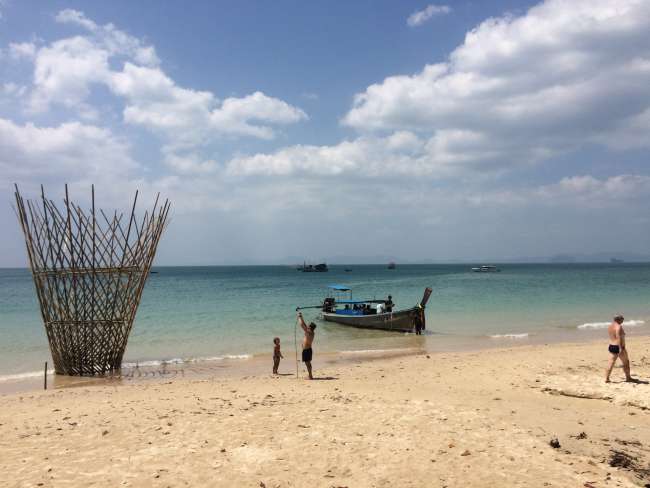
Swiviko swa maendzo Thailand

